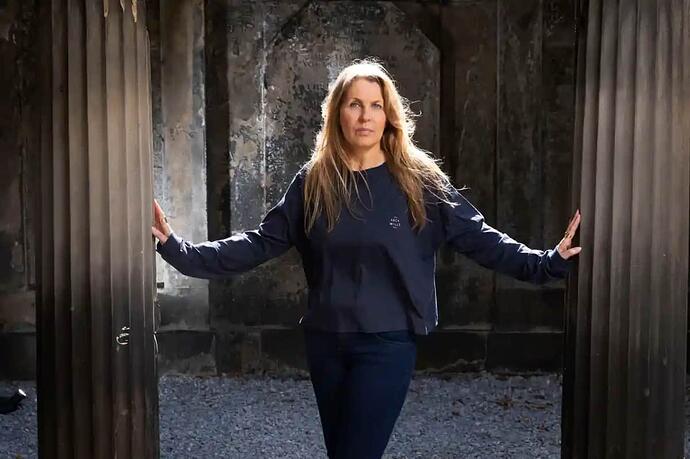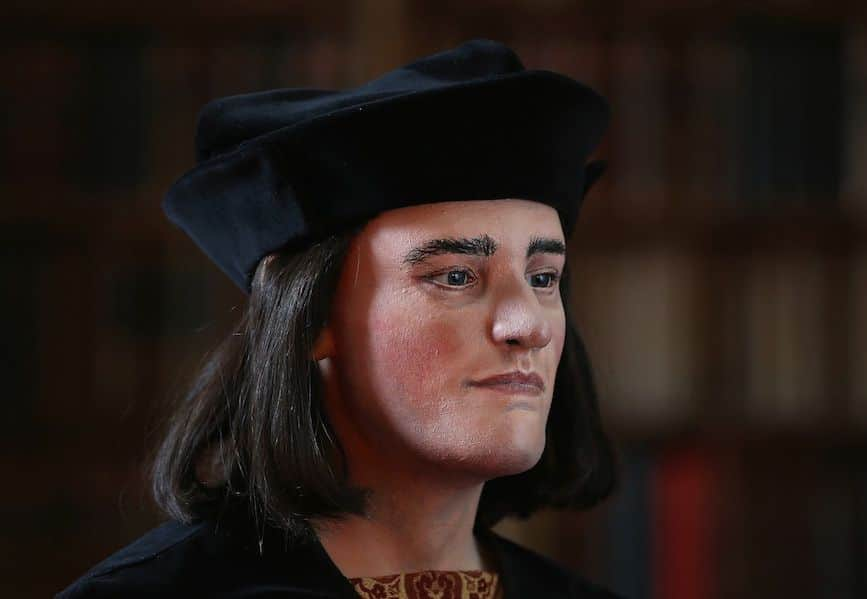Let’s go back to the beginning. In 1992, Langley reads a biography of Richard III by Paul Murray Kendall and discovers the disconnect between the actual man and what we generally think of him – warlike, manipulative, murderous, not to mention “Deformed, unfinished, sent before my time / Into this breathing world, scarce half made up”. She thinks of writing a screenplay to rehabilitate him.
Langley was, at that time, having a phenomenally hard time. She’d been diagnosed with ME, was unable to work, had two small boys, her marriage had broken down, and she was making trips to Leicester for which she had to “sleep-bank” for two or three days beforehand. “I could never tell any of them [the academics and, later, archeologists], because it was one of those illnesses then: if people knew you had it, you were a bit odd. I couldn’t risk them thinking, ‘Who is this person?’”
Then, in 2004, an event which I had assumed was artistic licence when it appears on the screen actually happened. She was in Leicester, trying to piece together from her research the whereabouts of a long-gone church, and she walked across the fabled car park. “I felt that I was walking on his grave. I got this intuitive experience. I was covered in goosebumps and freezing cold, on this lovely warm, spring day.” Astonishingly, she shared this experience with friends and family and, even more astonishingly, they took her seriously, or at least, didn’t laugh. “So the next year, in the spring, I went back, to test if it was real. I had the exact same experience in the exact same place. But this time, I saw a hand-painted letter R on the tarmac. Well, it clearly stands for ‘reserved’. But that’s what changed my focus.”
From there - still skint, still with a chronic illness – Langley moves heaven and earth, or at least Leicester council, to get the car park dug up. It’s like something from a Fay Weldon novel (except her husband is lovely). She needs a lot of things: money for the dig, archeologists to believe her, more money for ground-penetrating radar pre-excavation – and above all, she needs to keep her nerve. “I was sidelined and marginalised. I was hugely vulnerable. Because I’m not a doctor. I’m not a professor. But in the end, I came to find my voice.”
It’s a bit of a Joan of Arc story, in the sense that you can’t help worrying that, had you been there, you’d have been on the side of the sniggering soldiers, not on the side of the solitary firebrand. I mean, seriously, would you dig a spot because it had given someone goosebumps (twice)?
So, if the movie restores much of the credit to Philippa then I shall make the effort to watch it … 






 ) Again, it’s noticeable how quickly “Admin” jumps on the bandwagon for the press conference …
) Again, it’s noticeable how quickly “Admin” jumps on the bandwagon for the press conference … 
